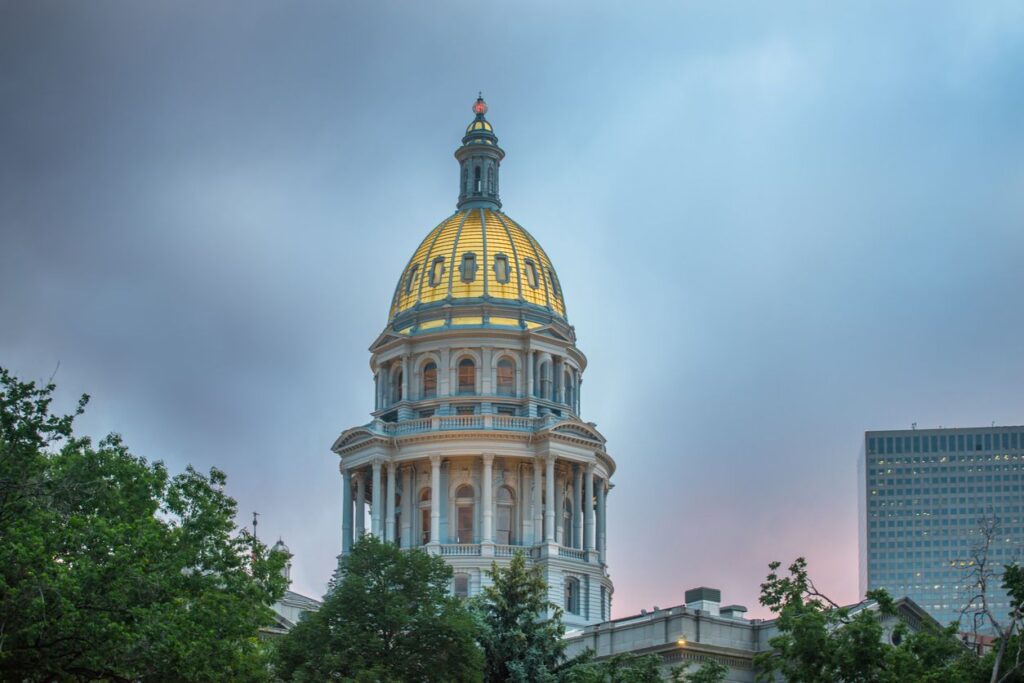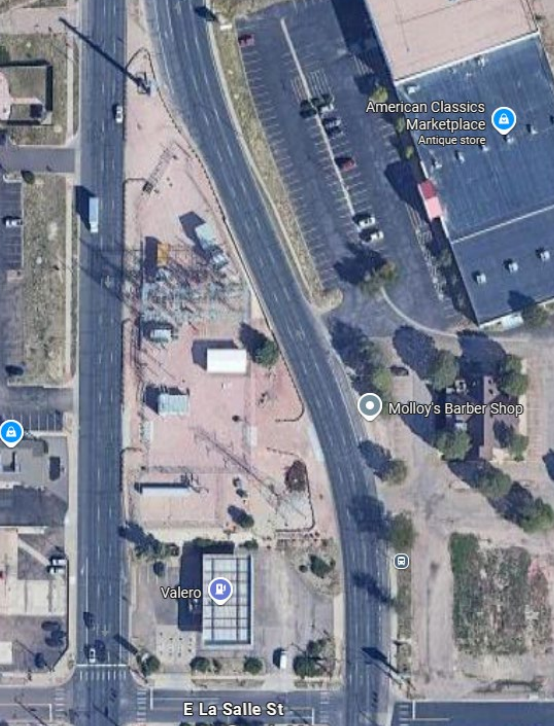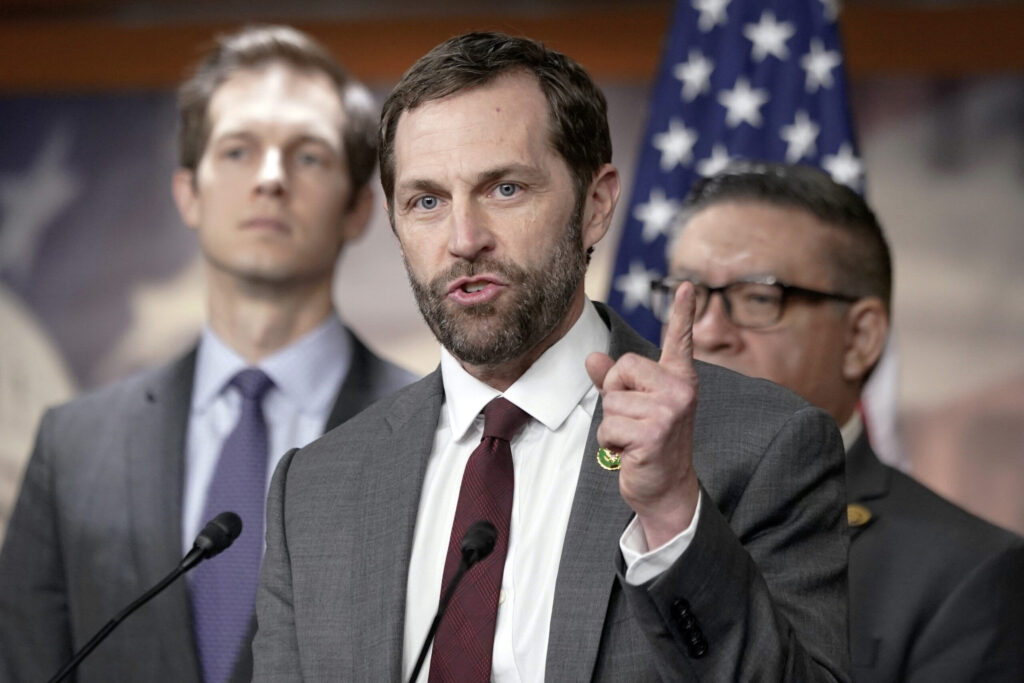Colorado legislators get bleak news on state’s budget situation
Colorado’s budget situation is “brutal,” a legislator acknowledged, as policymakers began to grapple with the reality that they also have little time to act, given the enormity of the budget cuts that they will need to consider in the coming weeks.
“To put it simply, we’re broke,” one think tank added on social media.
Already in motion is a request for state agencies to prepare for across-the-board spending reductions.
Legislative leaders reviewed just what they’ll have to cut from the current year’s budget in a hearing on Wednesday, when they heard from economists from the governor’s Office of State Budgeting and Planning (OSPB) and the Legislative Council.
Weeks after the state closed out its books for fiscal year 2024-25, lawmakers need to find $955 million to cut in the current year’s budget.
That’s on top of the $1.2 billion budget hole they had already to fix in this year’s budget.
OSPB Director Mark Ferrandino told the legislature’s executive committee — the six leaders of the House and Senate — that he has directed state agencies to come up with a 2.5% across the board cut to operating expenses, with the exception of agencies with contracted expenses and caseload, largely social services and prisons.
Ferrandino also said he favors tapping the state’s reserve, currently just shy of the mandated 15%, but that he’s less than enthusiastic about taking a lot of it. To cover the shortfall in 2025-26 with the reserve would leave that fund at about 9 — and that’s not enough in case of even a moderate recession, he said.
While economists from Legislative Council and OSPB differed on how the state got to $1.2 billion less in tax revenue, they both reached that same conclusion.
But the two offices differed on just what has to be cut from the 2025-26 budget.
Legislative Council economists said the biggest hits to tax revenue will come from individual income tax changes, rather than corporate income taxes.
Their estimate of what has to be cut and the impact on the reserve is lower, at about $691.9 million, which would reduce the reserve to 10.6%.
The economists updated the June revenue forecast, noting that two tax credits — the family affordability and the expanded earned income tax credit — both won’t be paid out in tax years 2026 and 2027.
Previously, they had told lawmakers both would become available to residents.
The updated forecast also showed impacts from the tax revenue changes to the state education fund and affordable housing diversions: the former will lose $101.4 million in 2025-26, the latter won’t get $30.4 million.
There is a small upside — more money available ($28.4 million) for the state’s free meals program for pupils, the result of increased revenue for Proposition FF, which increased the tax obligation of those with incomes above $300,000 annually.
House Minority Leader Rose Pugliese, R-Colorado Springs, asked whether the Joint Budget Committee, the panel that drafts the annual budget, is meeting.
House Speaker Julie McCluskie, D-Dillon, said is the responsibility of leadership to begin the conversations, although Ferrandino responded that he would talk to anyone at any time about the budget situation.
Time is of the essence, policymakers said.
Ferrandino noted that for every day that goes by, the problem becomes more difficult and the longer the state waits, the deeper the cuts will be.
JBC Chair Sen. Jeff Bridges, D-Greenwood Village, one of several members of the panel who attended Wednesday’s hearing, said his committee just saw the numbers for the first time in the last few days.
“It’s brutal,” he said. “We pulled a rabbit out of the hat (for the 2025-26 budget) because of TABOR and increased funding for schools, higher ed, Medicaid, public lands, public safety.”
Democrats in Colorado have increasingly been blaming the Trump administration’s for the state’s budget woes. Last session, the biggest driver of the deficit were hundreds of millions of dollars increases in Medicaid spending. More recently, they argued that Colorado’s deficit is directly the result of the president’s actions, notably the recently-signed federal budget.
Republicans, on the other hand, have rejected that framing of Colorado’s fiscal woes, arguing that the budget problem is the result of the actions of state legislators and the governor.
Bridges told Colorado Politics the only way to adopt immediate cuts is by convening special session, which he expects before the end of August.
“Now,” Bridges, the Democrat chair of JBC, said, “we have to cut another billion dollars because of Trump.”
On social media, Colorado House Democrats raised worries about what those cuts could mean for their spending priorities in the past several years: “A $1.2 BILLION budget hole means that K-12 public school funding, mental health services, affordable housing efforts, etc. are at risk of losing funding.”
Also in a statement Wednesday, Senate President James Coleman, D-Denver, echoed Bridges and blasted Republicans in Congress for adopting a budget that he said “recklessly slashed” Medicaid, the federal food stamps program and children’s health care, and that, by doing so, punted tough decisions to the state.
“With this irresponsible bill, they dealt a billion-dollar blow to our state budget,” Coleman said.” We have difficult decisions ahead and will do everything we can to minimize the harm, but there’s no avoiding the fact that these cuts will hurt Colorado families.”
“Plain and simple: Coloradans cannot afford the GOP’s budget,” added House Majority Leader Monica Duran, D-Wheat Ridge. “(Hardworking) families, domestic violence survivors, veterans, and others who rely on critical services might be forced to do without.”
Sen. Barbara Kirkmeyer, a Republican, earlier said the state was already in a structural deficit even before the federal budget bill was adopted and scoffed at Democrats for blaming the federal government — or even the Taxpayer’s Bill of Rights — for the state’s fiscal problems.
Last May, Kirkmeyer said lawmakers knew four years ago that the budget crisis is coming but that instead of cutting programs, Democrats continued to spend.
She pointed out that lawmakers gave themselves a pay raise through an increase in the per diem rate that came out of a 2024 bill that goes into effect with the 2025-26 budget. That’s at an annual increased cost of $300,000 in general funds and primarily goes to lawmakers who live less than 50 miles from the state Capitol.
Even with a $1.2 billion general fund shortfall, general fund spending in the 2025-26 budget actually increased by 3.4%, she noted. That included hikes in Medicaid provider rates that the JBC has supported for several years.
Back in April, Kirkmeyer said she worries that, while this year’s budget situation was difficult, it’s likely to be even worse next year.
“We’ve got a lot of work to do next year,” she said then. “We had a lot of one-time spending again this year that isn’t going to make it next year. We don’t have any other cash funds to keep trying to move money around into, and we don’t have a whole lot of interest left.”
Wednesday’s committee hearing was the first to be video livestreamed, under a pilot approved by the executive committee last month.











